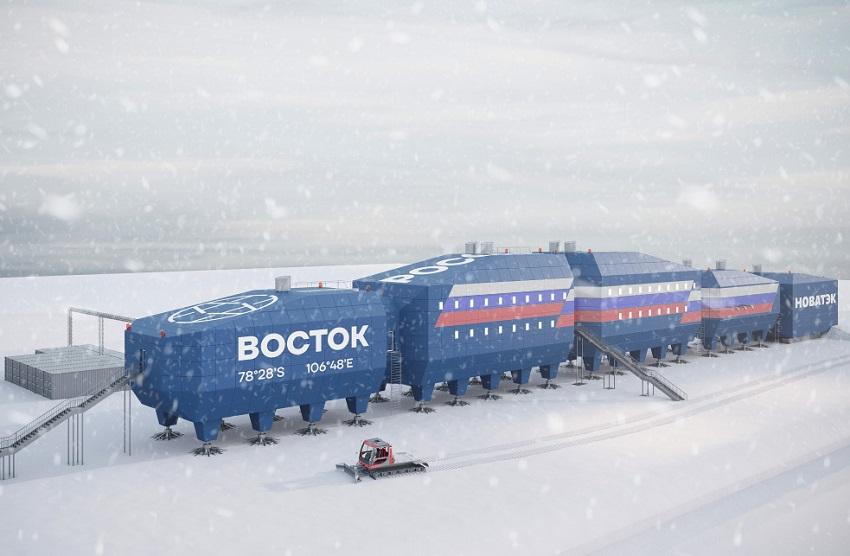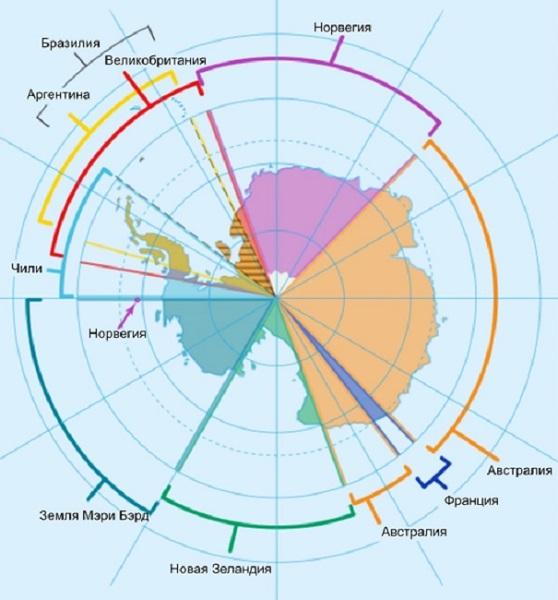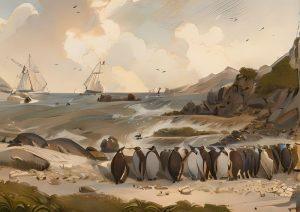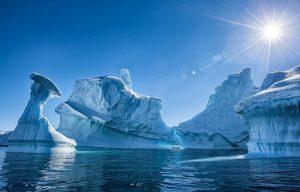
Who discovered Antarctica
Now Antarctica is the only continent on Earth that does not belong to anyone, on which the aborigines did not live, and which was not colonized. Military bases cannot be set up in Antarctica, no nuclear tests can be conducted there, nuclear power plants can be created and minerals cannot be extracted. But this is only for a while…
Because then the moratorium on mining will end and it is unlikely to be extended, because oil and gas will become much more expensive by that time due to the fact that there will be fewer of them. And Antarctica has huge reserves of gas, oil, chromium, coal, iron ore, diamonds, gold and fresh water. And then the real battle for Antarctica will begin.
At the time of the Great Geographical Discoveries, lands, vast territories and entire continents became the property of the states whose subjects discovered and served them. This was the case with America and Australia and many islands. This could have been the case with Antarctica if James Cook had managed to swim to the shores of Antarctica…
He reached only 67°15’s, encountered impenetrable ice and decided that there could be no further land and in general no one could penetrate further south than him. Cook’s authority was indisputable, so cartographers even stopped depicting the land at the south pole, which was talked about long before Cook.
But the Russian Emperor Alexander I spared no expense and in 1819 equipped two sloops Vostok and Mirny (as the Russian Antarctic stations are now called, by the way) for a long-distance campaign. The captain was Thaddeus Bellingshausen, and his assistant was officer Mikhail Lazarev, in total there were 190 people on the two ships.
The expedition lasted 751 days and covered more than 92 thousand km. During this time, 15 islands were discovered, which to this day bear Russian names, but most importantly, they still sailed to Antarctica, the existence of which Cook so denied. It happened on January 28 (16 old style), 1820.
According to all the rules of that time, Antarctica, discovered by the Russians, was supposed to become a new territory of the Russian Empire, but Alexander I, who by that time had already defeated Napoleon and liberated the whole of Europe, did not consider it necessary to claim the new continent.
The problem with Antarctica was the same as with Alaska — it was too cold there, it was too far away, what to do with it, how to protect it and where to get money for its maintenance was not clear. And most importantly, the benefits of owning it were not visible, the technologies of geological exploration and mining were not yet sufficiently developed.
That’s how they wanted to saw Antarctica

This continued until the beginning of the twentieth century. And then suddenly some countries decided to declare their claims to Antarctica: Australia, New Zealand, Chile, Argentina, France, Great Britain and Norway. Then there were new people who wanted to cut themselves a piece of the Antarctic pie.
In 1938, the United States decided to organize the division of a new continent discovered by the Russians (the USSR was not even invited). But in 1939, the Soviet Union politely explained that this was not the way to do it and openly declared that Antarctica belonged to all mankind.
After World War II, the USSR, on its own initiative, gathered in Washington a bunch of countries that signed the Antarctic Treaty, which is still in force. Otherwise, a new war would not have been avoided, because the territories desired by the countries intersected, and the USSR and the USA, although they did not participate in the division, declared that Antarctica was a zone of their strategic interests.
The essence of the treaty is that Antarctica is an exclusively peaceful area for scientific research. At the same time, none of the countries renounced their claims to the lands of Antarctica, the treaty only froze these claims for the duration of the treaty.
In 1991, an important document was signed in Madrid prohibiting all countries from mining in Antarctica. That’s just the moratorium on mining has been set for 50 years. Not everyone is likely to want to extend it for the reasons described at the beginning of the article, and therefore we will not avoid a new dispute.
All countries are exploring natural resources in Antarctica. Since 2014, the Chinese have also begun to actively explore Antarctica. In total, there are more than 90 polar stations in Antarctica, representing more than 25 states. The Russian Antarctic strategy takes all this into account, but the United States and other countries also have their own strategy.
But if Alexander I had declared Antarctica, discovered by the Russians, his territory, no one would have said a word, because it was according to the rules of that time. However, history does not know the subjunctive mood, and therefore in the near future we will have to fight again for the rights to Antarctica.


